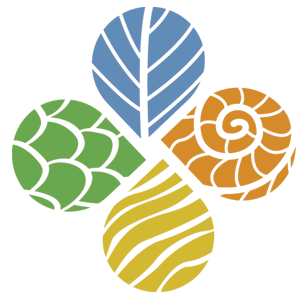Participants in the iDigBio supported Digitizing Mollusks workshop.
The iDigBio supported “Digitizing Mollusks” workshop was held immediately prior to the American Malacological Society meeting in Newark, Delaware on July 15-17, 2017. Thirty-eight collections professionals from 24 established and developing mollusk collections gathered to discuss the status of Mollusk collection digitization in North America and abroad.
After a gathering dinner and meet and greet, the workshop kicked off Sunday morning with introductions to iDigBio, the GBIF Task Force survey of Mollusk collections, and 2 minute lightning talks. Each organization arrived with a poster that described their collection strengths, weaknesses, struggles and achievements. These posters served as the foundation of the lightning talks, were accessible throughout the workshop for informal discussion, and many were integrated into the Poster session of the AMS meeting. In addition, we reviewed the results from a pre-meeting survey of Mollusk collections, introduced Symbiota as a collections management resource, and then concluded the morning with a general discussion about how we can standardize and find efficiencies in our common activities. This general discussion covered issues such as sensitive data (e.g., endangered or threatened species), georeferencing, developing a tool kit for triaging large acquisitions or legacy collections for digitization, and how the Mollusk community can interface with iDigBio on a more regular basis.
In the afternoon, five breakout sessions on problems and solutions addressed Mollusk-specific issues in digitizing multiple preparation types, data entry and workflows, adding new data to old records, data quality assurance and quality control, and collaboration, dissemination and feedback. Reports back to the participants were followed by a general discussion about how we can standardize work across collections.
On day 2, Dr. Nelson Rios from Tulane University introduced participants to GEOLocate, the leading web tool for georeferencing legacy natural history data. Essential technical concepts such as confidence reporting were shared, as well as an example of how multiple collections could join forces to digitize localities in a collaborative georeferencing framework.
Two follow-up surveys assessed the meeting success and future priority activities. These surveys revealed that participants appreciated the opportunity to network with like-minded colleagues and learn about how digitization was progressing in other collections, and that imaging the primary types was a high priority activity.
The workshop was a great step towards making data from the 2nd largest invertebrate phylum widely available. We look forward to future workshops and meetings that will help us refine and streamline our efforts to provide well-curated data for research, management, and educational purposes.
Notes from the discussions and presentations are compiled on the Digitizing Mollusks wiki and can be found on the workshop Wiki page.
|
List of participating Mollusk collections, in alphabetical order: |
| Bailey Matthews National Shell Museum, Sanibel, FL Bernice Pauahi Bishop Museum, Honolulu, HI Buffalo Museum, Buffalo, NY Burke Museum of Natural History, Seattle, WA Canadian Museum of Nature, Ottawa, Canada Carnegie Museum of Natural History, Pittsburgh, PA Delaware Museum of Natural History, Wilmington, DE Florida Museum of Natural History, Gainesville, FL Field Museum of Natural History, Chicago, IL Howard University, Washington, D.C. Illinois Natural History Survey, Champaign, IL Los Angeles County Museum, Los Angeles, CA Museum of Comparative Zoology, Boston, MA Muséum National d’Histoire Naturelle, Paris, France Milwaukee Public Museum, Milwaukee, MN National Museum of Natural History, Washington, D.C. North Carolina Museum of Nature and Science, Raleigh, NC Paleontological Research Institute, Ithaca, NY Santa Barbara Museum of Natural History, Santa Barbara, CA Schiele Museum of Natural History, Gastonia, NC Scripps Institution, San Diego, CA University of California, Berkeley, CA University of Michigan Museum of Zoology, Ann Arbor, MI |




